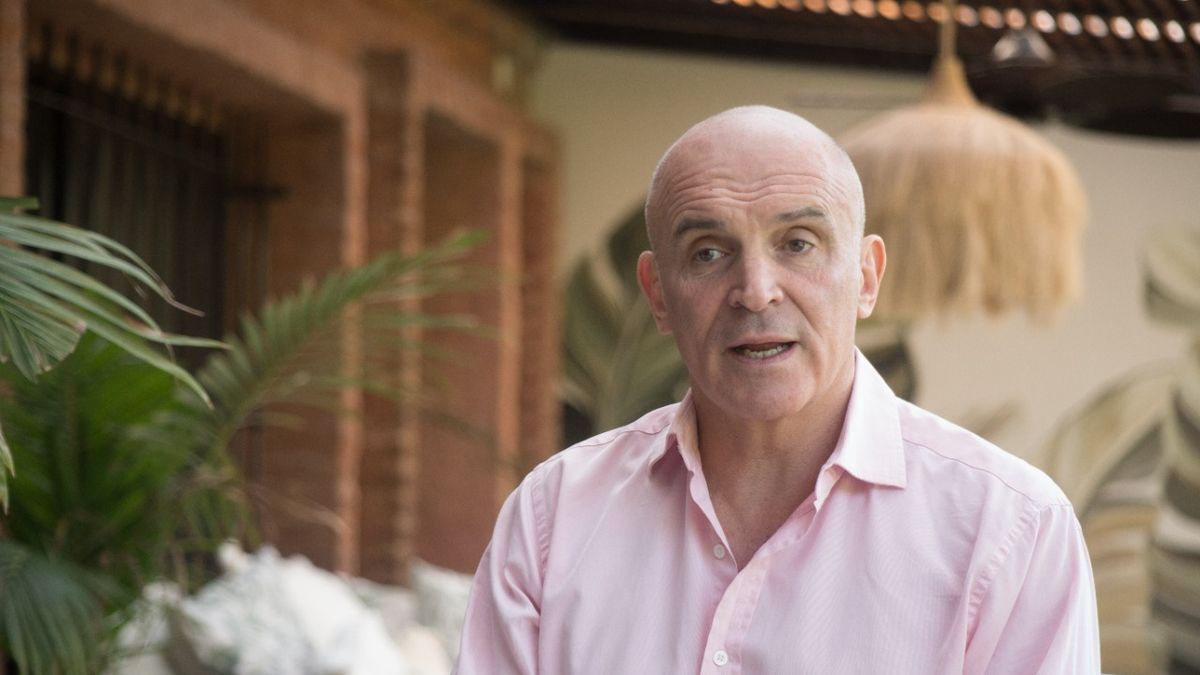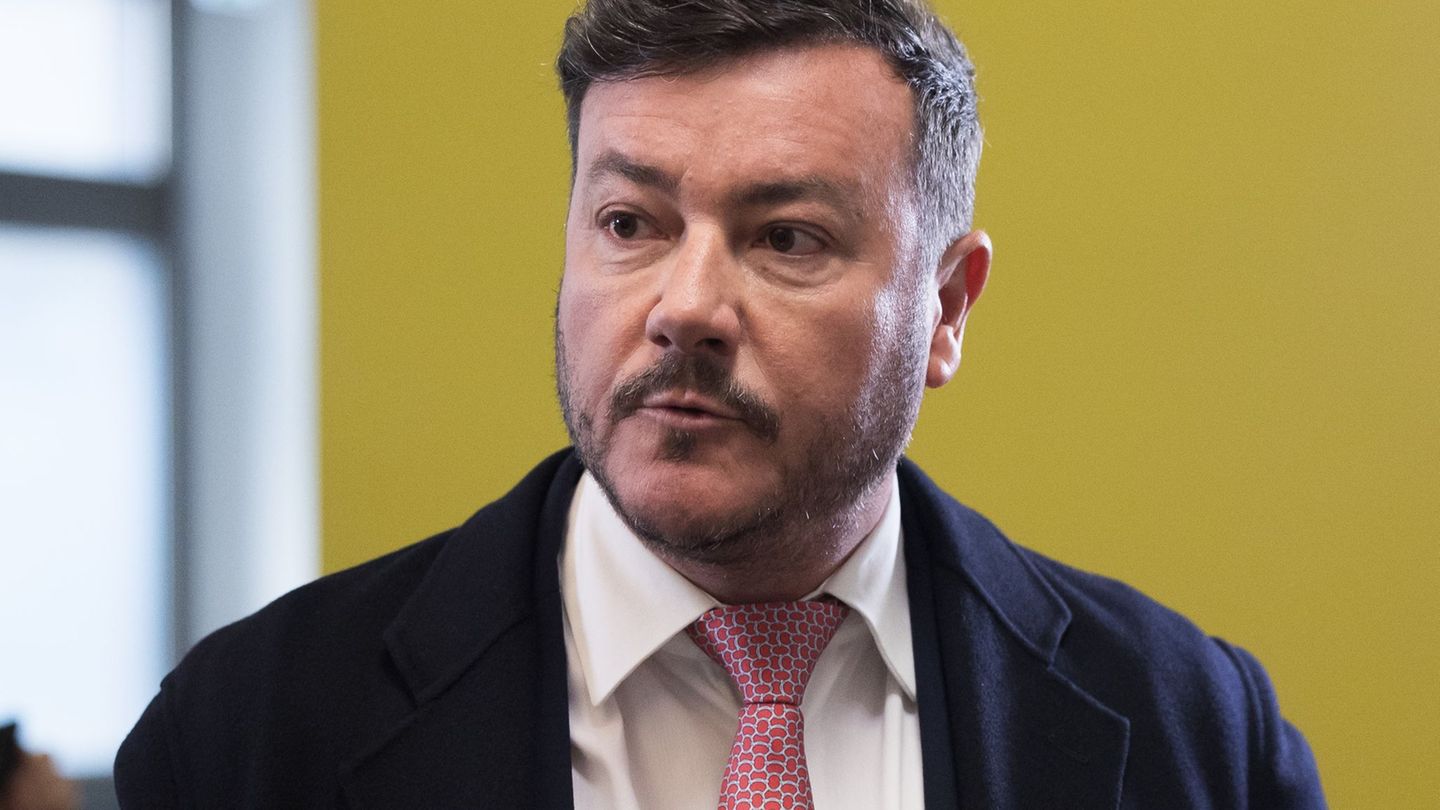“If before it was Alberto (Fernández) in government and Cristina in power, now that formula deepened, with more power towards her,” said the liberal economist during an interview with NA in his office in the adjoining building of the Chamber of Deputies of the nation.
Regarding Cristina Kirchner, Espert added: “Furthermore, she always said this: when she was President and Axel Kicillof was her minister, Cristina affirmed that she was the Economy Minister.”
“Now he repeated that experiment with Batakis as spokesperson,” he stressed, adding: “This portends more serious problems for the economy.”
“Undoubtedly, the inflation will speed up, as will the strain on the dollar”, Espert said, in the corollary of another week of high exchange rate volatility in the “city” of Buenos Aires, with the price of the US bill rising above 270 pesos per unit for sale in the parallel market and the spot market with liquidation at more than $300.
And he continued: “It will be necessary to see what happens with the goals of the International Monetary Fund when they are breached.” Batakis said days ago that Argentina will respect the guidelines of the pact with that body based in the United States.
On the other hand, he considered the current tense relationship between the two main leaders of the Frente de Todos and the Government: “Although this is not settled anywhere, the commitment that Alberto Fernández had with Cristina Fernández to solve all her causes judicial proceedings, the reason why he was the candidate for president instead of her, is not being fulfilled”.
“That produced a fracture in the Frente de Todos. Cristina is taking revenge for the fact that Alberto has not been functional in resolving her legal problems. The sawing of the floor that she is receiving has a lot to do with it and there is no turning back back in the sense that Kirchnerism decided to break with Albertism, take refuge in the province of Buenos Aires and may God provide Alberto with the future,” he added.
“This is very serious because, in a delicate economic situation, caused by the government, which also adds such great political uncertainty due to the fracture in the ruling coalition, it generates more mistrust. And mistrust is always recessive, inflationary and puts pressure on the dollar market,” he stated.
NA – And the opposition?
JLE – Together for Change has great tension inside. It is not the same -a part- of the PRO, that the Radical Civic Union (UCR) or the Civic Coalition (CCA). There is a shift in society towards center-right ideas and the PRO is reading it faster than the rest of the members of the space.
– The PRO or Macri and Bullrich? Will be able?
– Yes, Macri and Bullrich. They are pulling the strings well to take their party further to the right. It will not be easy, I do not know if they will achieve it. I also don’t know how much to believe the turn towards liberalism.
– Taking into account this doubt that he casts around the turn of Los Halcones del PRP, recent history tells us that Macri, after having categorically won the mid-term elections, did not go towards liberal policies either. Why would he do it now?
– Because as people who play politics a lot and know about the subject, they know that society turned to our side, the liberal one.
So, I do not rule out that just for a matter of political survival -perhaps- they turn to that side. If they did eventually win the 2023 election, they might do some of this — liberal politics — but I don’t think much. To carry out policies you have to be very convinced, it does not have to be just a matter of political convenience.
– Because?
– Because what you are facing to change Argentina for the better, paradoxically, is very difficult to face and bend.
– What would be the necessary condition?
– The necessary condition to bend is to feel it. I do not think that simple political convenience is enough, there is a lot of strength that must be had. You have to fight against Juan Grabois, Emilio Pérsico, Hugo Moyano, Roberto Baradel; also against prebendary businessmen, those who are in the Bribery Notebooks. There you have the focus of pus from Argentina.
– What explanation has the current exchange rate gap? Why is it so big?
– Automatically when a change control is established, the gap appears. The big thing about the gap is the expectation of devaluation of the official dollar in the future. That is a consequence of a very bad economic policy that we have. The market is the most democratic thing there is because there are thousands of people interacting. At this point, the market and society know that these things end badly. Exchange controls always ended with large devaluations of the official dollar, large inflations, political and social imbalances.
– Thinking about 2023, does the Government have a way out of this crisis?
– I would answer you on two levels: yes, it has. But the crisis is just beginning. In the last 60 years there have been seven crises. Which one will you look like? I do not know. We are going to a crisis between now and 2023.
Since storms have been sown, storms will be reaped.
– What should the government do?
– It would be ideal if they don’t deepen the stocks any further because they will generate the response that they have obtained in recent days. There are dire warnings that the economy is headed for a recession because of the stocks. They should free the dollar market and let it find its equilibrium point. I am afraid that what happened every time a trap was deepened in situations similar to these will happen: you end up putting a lot of pressure on a pot that ends up exploding and the dollar jumps unnecessarily.
– Can these macroeconomic movements affect the governability of President Alberto Fernández?
– Yes, of course, but the president does not help governance at all. He arrived from Germany and went to visit Milagro Sala with the country in trouble. He doesn’t do much for his own governance.
– Let’s talk about the “import festival”…
– The festival, as something pejorative, is the Government’s own inexperience. Cristina, without knowing it, because she is insane, criticizes herself. The critical part of the import boom is that of energy because it is malpractice. The rest is to accompany the growth.
– Kirchnerism has an anti-business rhetoric and against the “contractor country” -at least in the discursive- and you argue that a sector of the business class is part of the great structural problems. Do they talk about the same thing?
– Yes it’s correct. They hate agriculture, but although they are not so clear about it, they hate everything in which they have natural comparative advantages, such as agriculture, oil, wind energy, solar energy, tourism, regional economies. In addition, in the discursive they criticize all the sectors with which they have business, but they do it so as not to show what is behind the curtain that is big business. It is discursive to hide the reality of this system. Instead, my criticism is not only dialectical. For me, the prebendary employer is a serious problem.
– You speak of political corporation and your colleague Javier Milei caste, what differences exist between these concepts?
– I have a more systemic vision of the problem in Argentina, it is not just an issue of the political caste. In that sense, I do not tend to be monocausal, with others yes. The decline of the country is a multi-causal phenomenon: there is the judicial corporation, the union, that of the businessmen that we spoke about earlier.
I tend to be broader…
– Could we define it as classical liberal with respect to the rest of the liberal movement?
– I embraced economics as a science, like the Chicago School, and this vision is not something minor; economics is science because I can prove it. While the libertarian -of the Austrian school- tends to speak of the moral duty of freedom. I tend to have a scientific view of freedom.
– Does that make them populists?
– There is a right-wing populism, but not only in the libertarians, there are many people who happily say, ´We have to lower taxes´, and how do they finance the State? The new populism is that. He talks about the political cost of lowering taxes, which is lowering public spending.
– What analysis do you make of the liberal movement today?
– My diagnosis is very favorable. This movement was restored in 2019, after 30 years that it had disappeared, with my presidential candidacy. After (Álvaro) Alsogaray, Argentina never had an authentic liberal candidate. Our ideas are discussed on the street and in the media, that is, the ideas are accepted, but the question is whether they can be executed or not. Today we see Adam Smith Larreta, Milton Macri, Ludwig Von Bullrich.
We liberals achieved this, freedom advances…
– Does freedom advance?
– Yes, we were critical in this. Javier Milei also collaborated because he is a magnet for boys.
– Let’s talk about the current Milei, the one from the last weeks, what ideas do you share and in which ones do you differ?
– If we cut it in the last few weeks, I don’t share anything: neither the trade in organs, the suggestion of the trade in babies, nor banking the street vendors.
– Portation of arms?
– Either. Security has to be provided by the State because for that people pay taxes. Now, legitimate users is something else, but free p
Source: Ambito
David William is a talented author who has made a name for himself in the world of writing. He is a professional author who writes on a wide range of topics, from general interest to opinion news. David is currently working as a writer at 24 hours worlds where he brings his unique perspective and in-depth research to his articles, making them both informative and engaging.




